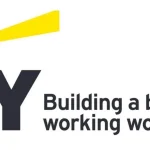Getting a job immediately after school can be quite challenging one way to ensure success in getting a job is to learn from others. Today it is tricky to navigate the workplace as a millennial. Not only is the world still in recovery mode, but cynical YouTube videos like the Workplace Training Video for Millennials show our credibility works against us. Millennials have strong hopes and clear standards. We don’t want to pursue the first or highest-paid job that comes our way. We want a job that is meaningful and guarantees satisfaction.
Nobody wants to go into a job or embark on a career path feeling like they are being enslaved or being trapped. That idea is not a healthy one if you want to make it up the corporate ladder or if you want to achieve success and fulfillment in life.
Below are lists of 10 things you should do after school before you get your first job.
- Be Prepared
Being prepared for anything in life gives you an advantage and a head start. It is said that proper preparation precedes poor performance. One thing you wish you had done is to prepare for everything. Preparation is a trait of some of the world’s most productive top executives. In preparation, you put everything into perspective, from your boss, colleagues, lunchtime, outfit, ride, salary, and vacation. Just about everything surrounding your ‘work space’.
This is something that you had wished to know and understand before ever embarking on that very first Job.
- Know Your Passion
Knowing your passion is just as important as the first point discussed above. Knowing your passion would have helped discover your key strengths and identify potential weaknesses. Knowing your passion would save time on irrelevant tasks and assignment that does not suit your nature.
As it relates to your job, you might even have worked in another department performing a task different from what you previously performed. The reason why knowing your passion is so vital to job success is that you would have been more productive than you were, had you discovered your passion.
- Work Ethics
What are work ethics? It is simply a set of beliefs that hard work is important to your success in a corporate setting. Having a good work ethic sets you out as an example to your peers.
Work ethic was generally interpreted as a virtue-based on hard job and dedication. For instance, capitalists believe in the importance of working hard and the corresponding capacity to improve one’s character. Socialists argue that a notion of “hard work” deludes the working class into becoming obedient bourgeois workers; that working well in itself is not inherently a noble thing, but rather a means for those at the economic pyramid table to generate greater wealth.
- Get Career Guidance
Getting proper career guidance is something many people never got around to receiving. They just jumped in on a Job just because they felt its time or felt the need to.
Whenever you need something in life you yourself decide “what to choose” and “what not to choose” for example food, clothing, house, car, accessories almost everything and every day but when it comes to choosing your career!
Getting career guidance will help you determine your strengths, weaknesses, help you set objectives for greater results, will discard confusion, and provide you with support and motivation.
- Network
Networking will help you develop and improve your skill set, stay on top of the latest trends in your industry, keep a pulse on the job market, meet prospective mentors, partners, and clients, and gain access to the necessary resources that will foster your career development.
You may think that networking is a reserved practice for your time out of the office and off the clock; however, nothing could be further from reality. Although there is a great deal of interest in communicating with individuals employed in other organizations or in various fields, don’t neglect the significance of networking in your Job.
- Skill – What Skill Do You Have?
Career development requires that you to build skills every employers want. Take a look at the macro trends impacting work as well as the micro-trends influencing the profession and find out which skills employers need most.
Technology has for centuries changed or evolved skill sets. The advent of the internet took news and media resources into a new era, with multimedia newspapers overshadowing paper publications. In the automotive and building industries, technology and robotics have transformed jobs—or rendered them redundant altogether.
Understanding what skills you have will help to increase your employability, grant you access to an increased career development opportunity, personal growth increase your knowledge and understanding of your local industry.
- Increase Your Communication Skill
In today’s hectic work environment, we rely heavily on information sharing, thereby putting greater emphasis on good communication skills. Effective verbal and written communication skills are important for timely and correct transmission and interpretation of knowledge. It is a vital life skill to be able to communicate effectively, and should not be ignored. Poor communication abilities, on the other hand, can have a negative impact-a poorly delivered response may contribute to confusion, anger, and in some situations tragedy.
Being able to communicate effectively is one of the most important life skills to learn. In all aspects of life, having strong communication skills benefits–from professional life to personal life and everything that comes in between; from an organizational point of view, all activities result from communication. Good communication skills are necessary for helping others and yourself to grasp knowledge faster and more accurately.
Conversely, ineffective communication skills sometimes contribute to confusion and frustration. Communication topped the list of the most sought-after soft skills by employers in a 2016 LinkedIn survey conducted in the US and is still one of the tops right now.
- Personal Development
Personal development plays a crucial role in one’s career growth. An individual who can contribute not only in his area of expertise but other domains as well is bound to get quick promotions and lucrative incentives and rewards. Trust me, personal development is imperative not only for career growth but also for mere survival in the organization. No organization would like to retain an individual who is resistant to changes and fails to perform in unpredictable and unforeseen situations.
Personal development helps you set goals and expectations for yourself. Any individual without a vision in life not only fails to deliver but also gets easily lost in the crowd. It is important to set expectations for yourself. There is a scope of improvement always. Never ever feel that you are the best and you know everything. Believe me, there are many things under the sky that we still do not know and need to find.
Personal development makes you a confident and mature professional, two extremely important qualities for career growth. It helps you smile even in the worst circumstances. Upgrading oneself with time is extremely important as it not only prepares you for the present but also for the future.
- Learn, Unlearn and Relearn
One of the quickest ways to advance in the workplace is to adapt with the changing trends. The people who often get left behind are the ones who wonder at the sudden changes that take place. One of the traits you should abide by is how quickly you can learn the new changes that take place, the new technology or new system, and ways of doing things.
How fast can you unlearn what you used to know? The way you used to do things. This is because the method you knew to work and do things might not be what is relevant in the marketplace.
Finally, how fast can you re-learn what you need in getting your dream job after school? This simple trait will definitely stand you out from others.
- Seek Internship
On the other hand, seeking an internship means working for someone for a short period of time to gain experience. Important elements of successful career advancement: setting goals and increasing skills sets.
It can be the product of gaining experience and likely undertaking additional training to scale the corporate ladder within the same profession. If one progresses by changing careers, that individual may move to a similar profession with greater educational needs and responsibilities. To some individuals, career advancement means reaching a top position at a particular company; for others, it could mean gaining experience in multiple professional fields in order to create a unique and versatile role for oneself.
Whatever it means, seeking an internship is so vital to progress in your career advancement and is one factor to consider after school before getting your dream job first Job.
Finding the right career, in some ways, comes down to whether you believe you have the power to. You have two choices: Fit into the mold of your industry or desired company carve your own path and make up the rules yourself. It is important to know what to do before accepting that job offer. Sometimes it all boils down to how prepared you are. Have a checklist of what you want to do and accomplish, so you don’t miss out on the best things that job or that career path has to offer.
One great tip is to find a mentor, someone that will guide you and tell to thread paths that will be of great value to you. This will help you immensely before getting your first job after school.









